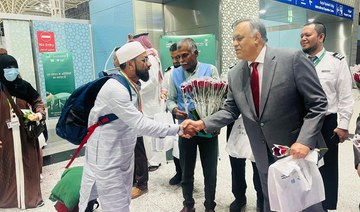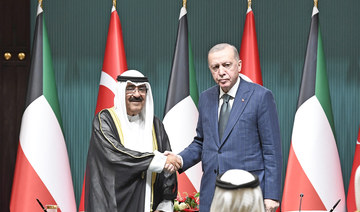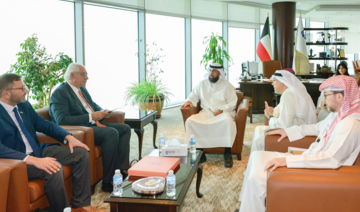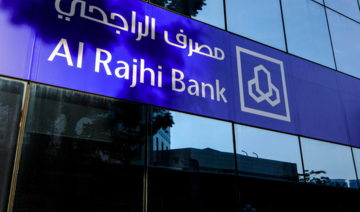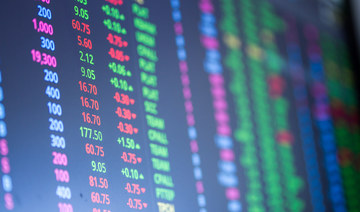LONDON: Snap Inc. on Wednesday said its artificial intelligence chatbot will now be able to respond to users’ messages with a fully AI-generated image, as the owner of photo messaging app Snapchat deepens its work in AI technology.
The announcement came at Snap’s annual Partner Summit. The company aims to use the technology to speed up its development of augmented reality (AR) features, or computerized images overlayed on top of photos and videos of the real world.
Generative AI has captured the tech industry’s focus in recent months and can generate original text or photos in response to prompts. Snap’s chatbot, called My AI, which can help users with everything from writing poems to searching for information, was built using startup OpenAI’s ChatGPT technology.
My AI is now available free to all Snapchat users and can be invoked to respond to questions in conversations between friends on Snapchat, Snap said on Wednesday. The chatbot was first rolled out to users who pay $3.99 a month for the company’s premium subscription Snapchat+.
My AI could help users explore more parts of the Snapchat app by recommending lenses, which can add effects to photos and videos, or use the app’s map feature to recommend real-world places to visit, said Evan Spiegel, chief executive of Snap, in an interview.
“This is the first time we’re bringing AI into communication, which is the core of our service,” he said. “People are really using My AI as a creative tool.”
My AI’s ability to respond to users with its own AI-generated images will be available first on Snapchat+, which has reached 3 million subscribers, Snap said.
As AI chatbots have grown, so have concerns about whether AI could plagiarize published works, provide inaccurate information or return harmful responses to queries.
Snap said it added new safety guard-rails to My AI, including temporarily restricting a user’s access to the chatbot if they repeatedly ask it inappropriate or harmful questions.
Snap analyzes conversations with My AI and has found that 99.5 percent of the chatbot’s responses adhere to Snapchat’s community guidelines, Spiegel said.
He added that My AI will now also take a user’s age into consideration “to make sure the conversation is age-appropriate.”
On Wednesday, the Santa Monica, California-based company also unveiled new AR mirrors which can be installed in stores to help customers virtually try on clothing items or see which accessories would match their outfit.
Retailers Nike and Men’s Warehouse are using the mirrors in some stores, Snap said.
The mirrors are part of an enterprise division Snap launched last month to help other companies build AR experiences for their own apps and websites. The venture could also help Snap diversify beyond digital advertising, which currently makes up the majority of its revenue.
Snap expands AI chatbot with ability to create images
https://arab.news/nj7nz
Snap expands AI chatbot with ability to create images

- My AI chatbot helps users to better explore app's features
Saudia unveils 2024 Hajj season plan
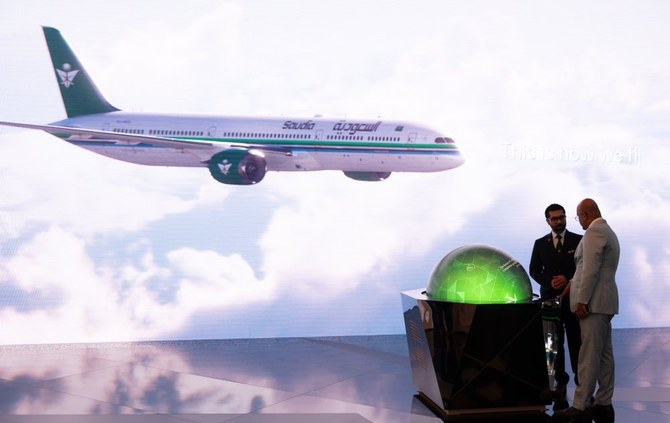
- Kingdom’s national carrier boasts more than 150 aircraft in its fleet, and has pledged to deliver “top-notch services” to pilgrims during Hajj
- More than 11,000 frontline employees and aircraft maintenance technicians will work throughout the season
RIYADH: Saudia has unveiled its operational plan for this year’s Hajj season, allocating more than 1.2 million airline seats for pilgrims visiting the Kingdom.
The Kingdom’s national carrier boasts more than 150 aircraft in its fleet, and has pledged to deliver “top-notch services” to pilgrims during Hajj, the Saudi Press Agency reported.
The airline’s operational period for the Hajj season spans 74 days, beginning May 9. It includes both arrivals and returns.
Saudia has organized specialized teams to oversee performance monitoring, lounge operations, coordination with other sectors as well as an emergency plan in collaboration with relevant stakeholders.
Virtual simulations have been conducted at Jeddah and Madinah international airports to prepare for Hajj.
Saudia is welcoming pilgrims from the Grand Mosque through five domestic airports: Jeddah, Madinah, Riyadh, Dammam and Yanbu, the SPA reported.
More than 11,000 frontline employees and aircraft maintenance technicians will work throughout the season. The Makkah Route initiative will cater to 120,000 pilgrims, while the “Hajj with No Bags” service will also run.
The airline plans to handle 270,000 bags and 240,000 Zamzam water bottles during Hajj.
Amer Alkhushail, CEO of Saudia Hajj and Umrah, said that the national carrier is “honored” to play a vital role in serving pilgrims, aligning with the objectives of the Kingdom’s Vision 2030.
Saudia has gained “invaluable experience” from previous Hajj seasons, contributing to the development and implementation of strategic initiatives, he added.
“As part of our preparations for the upcoming Hajj season, the Saudia Group is committed to forging agreements with government delegations and travel agents. We are dedicated to ensuring adequate seat capacity and extending our services to meet demand in over 100 destinations across four continents,” Alkhushail said.
“Moreover, we are facilitating reservation and ticket issuance through electronic channels and Saudia Group offices. Additionally, we are conducting awareness campaigns to educate pilgrims about luggage requirements, including dimensions, weights and prohibited materials for air transport.
“Furthermore, we are poised to support the implementation of flights through the Makkah Route Initiative.”
Through its workforce, Saudia can provide communication to pilgrims from around the world in 30 languages, he added.
Onboard meals are tailored to accommodate diverse preferences, Alkhushail said, highlighting Saudia’s in-flight entertainment, which offers pilgrims educational and guidance materials developed in collaboration with the Saudi Ministry of Hajj and Umrah.
Saudia also offers luggage collection services from pilgrims’ residences, easing travel after the completion of Hajj rituals, he added.
Turkiye, Kuwait deals signal rise of ‘nonaligned axis’ in region
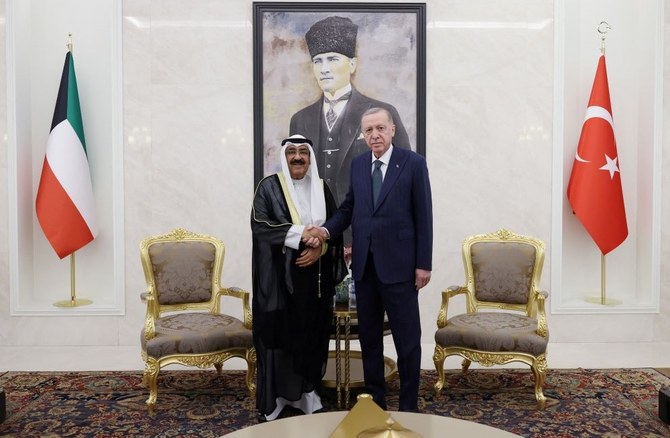
- Partnerships with Gulf countries ‘are win-win moves economically, politically’ for Ankara, analyst tells Arab News
- Visit is significant as it is Sheikh Meshal’s first to a non-Arab country since taking office in December
ANKARA: Turkiye and Kuwait recently strengthened their bilateral relations by signing six cooperation agreements in the fields of defense, trade, energy, tourism, health and diplomacy during Kuwaiti Emir Sheikh Meshal Al-Ahmad Al-Sabah’s visit to Ankara, where he was received by Turkish President Recep Tayyip Erdogan in a grand state ceremony.
These agreements, including a protocol on defense procurement and a memorandum of understanding on strategic dialogue, followed discussions between the leaders and their delegations.
The visit is significant as it is Sheikh Meshal’s first to a non-Arab country since taking office in December, and coincides with the 60th anniversary of diplomatic relations between Turkiye and Kuwait.
Eyup Ersoy, a visiting fellow in the Department of International Relations at the London School of Economics and Political Science, said that the progress in bilateral relations is bound to have an impact on regional politics.
“There is a recently revived Turkish interest in developing its relations with the states of the region which are keen to adopt a neutral position in the polarized regional geopolitics. Accordingly, there seems to be a cluster of countries in the Middle East that are trying to stay out of the entanglements of regional geopolitics,” he told Arab News.
“With the consolidation of Turkish-Kuwaiti relations, this nonaligned axis is expected to establish itself as a third alternative in the polarized region. In this regard, the signing of a strategic dialogue agreement signifies the commitment of the two states to align their regional policies.”
According to Turkiye’s Ambassador to Kuwait, Tuba Nur Sonmez, who spoke to Kuwait’s state news agency KUNA, the visit included discussions on bilateral relations and regional issues such as the Israel-Hamas conflict.
Both countries aim to increase their trade volume to $1 billion from $688 million last year, with Turkish exports to Kuwait exceeding $583 million last year. In addition, Kuwait sealed a $367 million deal with Turkish drone manufacturer Baykar to buy TB2 armed drones in 2023.
According to Ersoy, the defense industry supply agreement signed during the visit indicates a mutual interest in advancing defense industry cooperation between the two states.
“The content of the actual transactions will be determined by the Kuwaiti leadership’s assessment of Kuwait’s defense industry needs and the extent to which Turkiye could supply relevant defense industry products,” he said.
However, Ersoy said that trade volume between the two countries is not high compared with their other trading partners.
“For example, in 2022, Turkiye ranked 19th among Kuwait’s export destinations, while Kuwait ranked only 56th for Turkish exports,” he said.
“Therefore, both sides are keen to strengthen their trade relations, as indicated by the statement during the visit on the need to revitalize the Joint Economic Commission.
“In addition, Kuwait’s leadership is seeking to diversify its economy in line with its Vision 2035 strategy, as its revenues are almost entirely based on the export of hydrocarbons. Increased trade with Turkiye has the potential to contribute to this ambitious macroeconomic goal,” Ersoy said.
Kuwaiti direct investment flow in Turkiye, which stood at $2 billion last year, has also continued, reaching $1.5 billion so far this year.
“More Kuwaiti participation in the Turkish economy, especially through direct and portfolio investment, is imminent,” said Ersoy.
Kuwait is also expected to take steps to reduce its trade imbalance with Turkiye, he added.
In the tourism sector, Istanbul broke a 10-year record last year with a surge of Gulf tourists visiting the city. Trabzon, Bodrum, and Izmir are other top destinations for Kuwaiti tourists visiting Turkiye during the summer.
However, Arab visitors have been the targets of sporadic attacks amid anti-Arab sentiment in Turkiye. Last year, a Kuwaiti tourist was attacked in the northern city of Trabzon.
Betul Dogan Akkas, an assistant professor of international relations at Ankara University, said bilateral relations between Turkiye and Kuwait were based on mutual respect and trust, stemming from a historical and diplomatic legacy.
“There is capital in these relations to promote cooperation, especially in the economic sphere, including the defense industry,” she told Arab News.
“Kuwait is open to consolidating its trade, and for Ankara, partnerships with Gulf countries are win-win moves both economically and politically.
“The key aspect in analyzing these relations is the current willingness of both sides to build long-term goals. So far, we have seen mostly reactionary or short-term economic and political moves,“ Dogan Akkas said.
“Now is the right time for relations to institutionalize diplomatic capital. This requires leadership support, and both parties have it, as the emir of Kuwait visited Turkiye as his first non-Arab trip.”
Dogan Akkas also believes that the level of success and structure of political decision-making are crucial to strengthening relations.
She said that Turkiye’s ambassador to Kuwait is using her position to “achieve a comprehensive and well-structured long-term goal.”
Another question about this visit is the significance of its timing.
Ersoy believes that the Turkish president’s recent visit to Iraq appears to have eased a source of tension in Gulf politics by demonstrating Ankara’s willingness to cultivate more constructive and cordial relations with a critical neighbor of Kuwait.
“Turkiye’s receptiveness to regional political dialogue and economic prosperity has shaped the Kuwaiti leadership’s assessments in strengthening Kuwait’s ties with Turkiye,” he said.
Kuwait recently showed unease at being left out of the development road project linking Iraq to Turkiye and the Gulf states. During Erdogan’s recent visit to Iraq, Ankara secured the signing of a quadrilateral memorandum of understanding between Iraq, Qatar, the UAE, and Turkiye.
However, the project, which will significantly boost regional transport, will be launched from Iraq’s Faw port, adjacent to Kuwait’s Mubarek port, whose delayed completion has been criticized in Kuwait.
But there was no mention of this unease during the visit to Ankara.
In addition, Ersoy said, national security imperatives appear to have contributed to the recent visit.
“Kuwait’s neutrality in the regional struggle does not guarantee immunity from coercive diplomacy or punitive strategies in a militarized and highly volatile region,” he said.
“Therefore, exploring and building a security partnership with Turkiye appears prudent for the Kuwaiti leadership, which is another reason for the recent high-level visit.”
In this context, Dogan Akkas underlined the importance of the regionalizing their cooperation.
“If Kuwait and Turkiye take their cooperation to a regional or subregional level, as leaders in certain regional affairs, the political capital will be properly implemented,” she said.
Al Rajhi Bank launches $1bn in perpetual bonds, says document
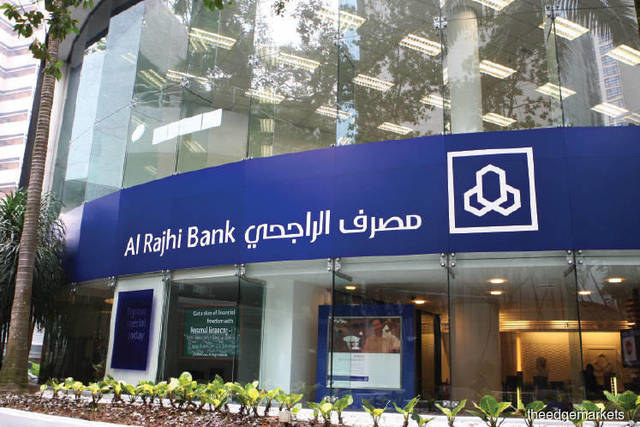
RIYADH: Al Rajhi Bank, the world’s largest Islamic bank by assets and market capitalization, has launched $1 billion in Additional Tier 1 sustainable sukuk, or Islamic bonds, a document from one of the banks arranging the deal revealed on Thursday.
The final yield for the debt transaction was set at 6.375 percent, tighter than the initial guidance of around 6.875 percent released in a document earlier in the day. The notes are perpetual in nature and can first be redeemed in May 2029.
The deal received more than $3.5 billion in orders and allocation is expected to happen later in the day, the document showed.
AT1 bonds, the riskiest debt instruments banks can issue, are designed to be perpetual in nature, but lenders can call them after a specified period.
Closing Bell: Saudi main index slips to close at 12,284
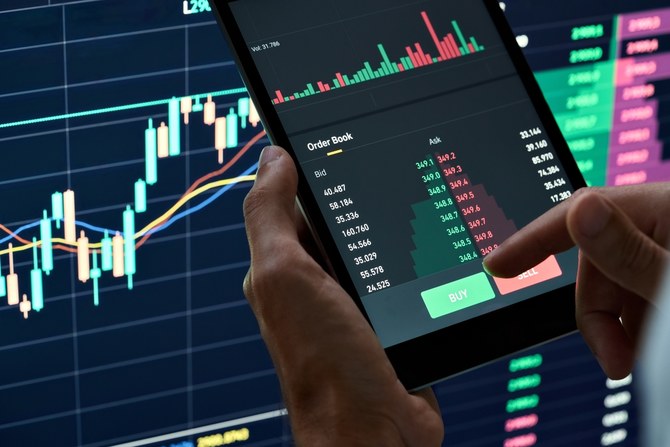
RIYADH: Saudi Arabia’s Tadawul All Share Index slipped on Thursday, losing 175.70 points, or 1.41 percent, to close at 12,284.41.
The total trading turnover of the benchmark index was SR7.31 billion ($1.94 billion) as 41 of the stocks advanced, while 184 retreated.
On the other hand, the Kingdom’s parallel market Nomu rose 199.85 points, or 0.74 percent, to close at 27,086.44. This came as 20 of the stocks advanced, while as many as 45 retreated.
Meanwhile, the MSCI Tadawul Index slipped 19.92 points, or 1.28 percent, to close at 1,537.54.
The best-performing stock of the day was Al-Babtain Power and Telecommunication Co. The company’s share price surged 7.77 percent to SR45.75.
Other top performers include Retal Urban Development Co. as well as Tanmiah Food Co.
The worst performer was Gulf Union Alahlia Cooperative Insurance Co. whose share price dropped by 10 percent to SR22.68.
Other worst performers were Allied Cooperative Insurance Group as well as Al-Etihad Cooperative Insurance Co.
On the announcements front, Jamjoom Pharmaceuticals Factory Co. has announced its interim financial results for the period ending on March 31.
According to a Tadawul statement, the company’s net profit hit SR102.9 million in the first quarter of 2024, reflecting a 22 percent surge when compared to the similar quarter last year.
The increase was mainly driven by an increase in sales, which were slightly offset by the devaluation impact from the Egyptian pound.
Moreover, the National Gas and Industrialization Co. also announced its interim financial results for the first three months of 2024.
A bourse filing revealed that the firm’s net profit reached SR78.6 million by the period ending on March 31, up 7.6 percent in comparison to the corresponding period in 2023.
The increase in net profits is primarily attributed to a surge in gross profit by SR9 million due to increased revenues, alongside a rise in investment and finance income by SR2 million. Additionally, there was an increase in other income by SR1 million, coupled with a decrease in zakat expense by SR2 million.
Furthermore, Modern Mills for Food Products Co. also announced its interim financial results for the first quarter of the year.
According to a Tadawul statement, the company’s net profits climbed 1.3 percent to reach SR64.9 billion in the first three months of 2024 compared to the same period a year earlier.
This rise is mainly owed to revenue growth as well as improving efficiency.
Additionally, Saudi Industrial Investment Group also announced its interim financial results for the period ending on March 31.
A bourse filing revealed that the firm’s net profit stood at SR28 million at the end of the first quarter of 2024, compared to a net loss of SR242 million recorded in the same quarter a year ago.
The increase in net profit is attributed to SIIG’s higher share of profit from joint ventures, coupled with a reduction in zakat expenses.
Remarks underscore a growing rift on Gaza war between the US and its strongest ally in the Middle East
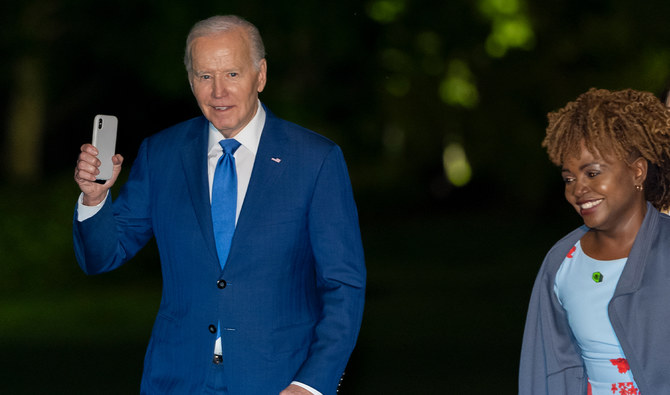
- Biden’s comments represent his strongest public language to date in effort to deter Israeli assault on Rafah
- Remarks underscore a growing rift on Gaza war between the US and its strongest ally in the Middle East
President Joe Biden on Wednesday publicly warned Israel for the first time that the US would stop supplying it weapons if Israeli forces make a major invasion of Rafah, a refugee-packed city in southern Gaza.
“I made it clear that if they go into Rafah ..., I’m not supplying the weapons that have been used historically to deal with Rafah, to deal with the cities – that deal with that problem,” Biden said in an interview with CNN.
Biden’s comments represent his strongest public language to date in his effort to deter an Israeli assault on Rafah while underscoring a growing rift between the US and its strongest ally in the Middle East.
Biden acknowledged US weapons have been used by Israel to kill civilians in Gaza, where Israel has mounted a seven-month-old offensive aimed at annihilating Hamas. Israel’s campaign has so far killed 34,789 Palestinians, mostly civilians, the Gaza Health Ministry said.
“Civilians have been killed in Gaza as a consequence of those bombs and other ways in which they go after population centers,” he said when asked about 2,000-pound bombs sent to Israel.
Israel this week attacked Rafah, where more than one million Palestinians have sought refuge, but Biden said he did not consider Israel’s strikes a full-scale invasion because they have not struck “population centers.”
A senior US official, speaking on condition of anonymity, said Washington had carefully reviewed the delivery of weapons that might be used in Rafah and as a result paused a shipment consisting of 1,800 2,000-pound (907-kg) bombs and 1,700 500-pound bombs.
The interview was released hours after Defense Secretary Lloyd J. Austin III acknowledged publicly Biden’s decision last week to hold up the delivery of thousands of heavy bombs was taken out of concern for Rafah, where Washington opposes a major Israeli invasion without civilian safeguards.
Israel’s campaign in Gaza was triggered by Hamas ‘ Oct. 7 attack on Israel. That killed about 1,200 people with about 250 others abducted, of whom 133 are believed to remain in captivity in Gaza, according to Israeli tallies.
Biden said the US would continue to provide defensive weapons to Israel, including for its Iron Dome air defense system.
“We’re going to continue to make sure Israel is secure in terms of Iron Dome and their ability to respond to attacks that came out of the Middle East recently,” he said. “But it’s, it’s just wrong. We’re not going to – we’re not going to supply the weapons and artillery shells.”





